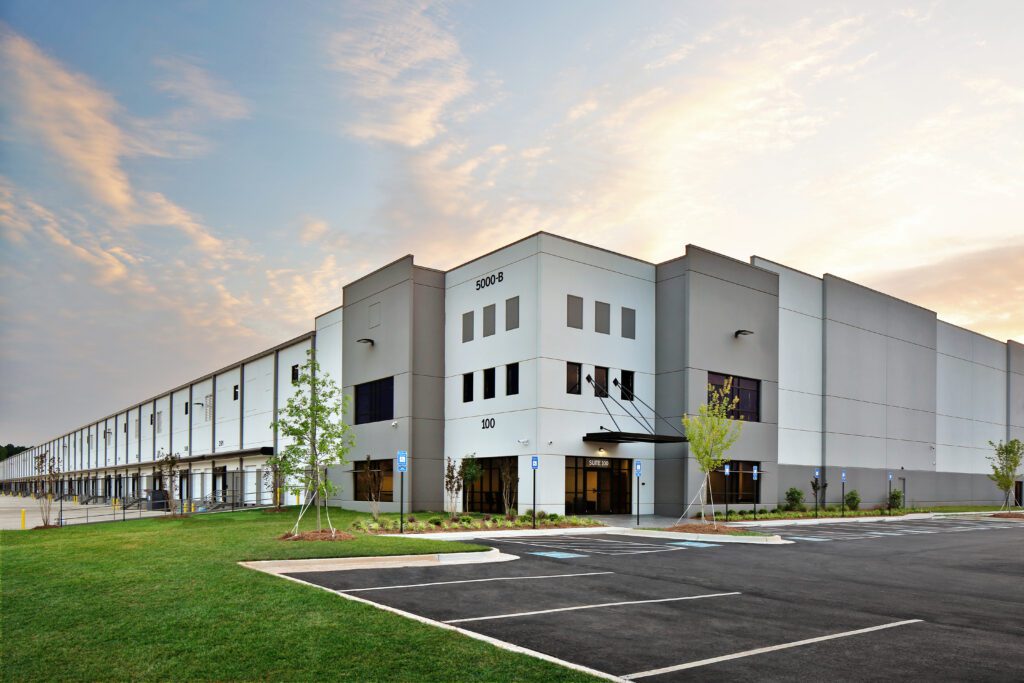May 2024
Chicago Industrial Vacancy Up, Market Fundamentals Remain Strong

The Chicago industrial real estate market, once on a blistering pace, is experiencing a period of recalibration in 2024. While vacancy rates have ticked up slightly, experts see this as a course correction after a period of extraordinary growth, adding that the market fundamentals remain strong.
“It really is an amazing market dynamic because we have examples right now in which we represent a particular tenant requirement which has 15 legitimate alternatives to choose from,” Disser said. “At the same time, we represent a landlord/owner in another submarket where we are the only available space in the submarket – at that size we have no competition. This is were we create value and look to monetize the leverage we create.”
Data from NAI Hiffman showed that net absorption, a key metric reflecting overall demand, dipped into negative territory in Q1 2024, for the first time since 2017. Occupier demand, though still present, has shown some moderation compared to the frenetic activity of 2021 and 2022.
“It’s a unique period of time in our world because we still have varying levels of user demand and leasing activity, which is very different across submarkets and size ranges yet generally exists, but the development market has dramatically slowed due to capital markets turbulence and moderating absorption levels,” said Kelly Disser, executive vice president of NAI Hiffman. “Historically, we may expect to see the entire industry slow at the same time, but we fortunately still have some activity and growth. Certain segments of our business plan remain strong, while others are currently relatively nonexistent.”
Disser pointed to the record-breaking 39 million square feet of new industrial space delivered in 2023 as a key factor, explaining that most of the projects got their start 18 to 24 months before delivery.
“Looking back at 2021, every developer who had access to land and capital was pushing to get an industrial building built,” Disser said, adding that a record number of projects and square footage came into the pipeline. “Our market is correcting. Now there are a lot fewer buildings and a lot less square footage under construction for delivery in 2024, approximately 18 million square feet.”
Vacancy rates, which at one point dipped to a record low of 3.9 percent, have increased to 5.7 percent, what Disser described as a “normal vacancy rate,” and an increase of about 180 basis points.
“This is oversimplifying some more detailed inputs which exist in reality, but if you take 180 basis points on the 1.3 billion square feet that comprise the Chicago market, it breaks down to about 22 million square feet. That’s very close to the difference of the 39 million square feet that was delivered and the 15 million square feet of absorption that we had last year,” Disser said. “In our very recent past, it was a time when space was limited relative to the demand at the time, the resulting market increases in rental rates were 20 to 35 percent on an annual basis. After 2-3 years of that, we now see rents in some cases 150 percent to 200 percent of their pre-pandemic levels.”
Disser highlighted that with only 13 million square feet currently under construction, compared to the massive influx of 2023, the market is poised for a more sustainable pace of development, especially when it comes to the types of buildings going up.
“What’s under construction currently is much closer to a 50/50 split of build-to-suit to speculative development,” Disser said. “In 2023, that was closer to 85 percent spec, 15 percent build-to-suit. The rising vacancy rate is largely due to surplus inventory of spec development that has not yet been absorbed outside of maybe one particular submarket, I believe the vacancy levels are very healthy at this time.”
Meanwhile infill, second-generation, shallow-bay space maintains historically low levels of available space.
“It really is an amazing market dynamic because we have examples right now in which we represent a particular tenant requirement which has 15 legitimate alternatives to choose from,” Disser said. “At the same time, we represent a landlord/owner in another submarket where we are the only available space in the submarket – at that size we have no competition. This is were we create value and look to monetize the leverage we create.”
Disser sees opportunities for developers in infill markets, where land availability is limited, significant barriers to entry exist, but demand for new space remains high. He emphasized the importance of navigating the permitting process efficiently to capitalize on these opportunities.
The future of the Chicago industrial market also holds promise for a diverse range of users. While traditional sectors like e-commerce and distribution may see some adjustments, Disser pointe to continued strength in data centers, food processing and even manufacturing.
“At Hiffman, we present an institutional level of sophistication and understanding of the leasing market and the capital markets,” Disser said. “At the same time, we have an entrepreneurial approach focused on long term relationships in order to execute for our clients. We get on the ground and really go find assets, tenants, opportunities and add value for our clients from being out in the market all the time.”
Read the full story from Chicago Industrial Properties.
About Hiffman National:
Hiffman National is one of the US’s largest independent commercial real estate property management and advisory firms, providing institutional and private clients exceptional customized solutions for property management, facility management, advisory services, accounting, lease administration, lender services, project management, marketing, and research. The firm’s comprehensive property management platform and attentive approach to service contribute to successful life-long relationships and client satisfaction. As a nationally bestowed Top Workplace, and recognized CRE award winner, Hiffman National is headquartered in suburban Chicago, with more than 250 employees nationally and an additional six hub locations and 25 satellite offices across North America.
About NAI Hiffman:
NAI Hiffman is one of the largest independent commercial real estate services firms in the US, with a primary focus on metropolitan Chicago, and part of the NAI Global network. We provide institutional and private leasing, property management, tenant representation, capital markets, project services, research, and marketing services for owners and occupiers of commercial real estate. To meet our clients’ growing needs outside of our exclusive NAI Hiffman territory, we launched Hiffman National, our dedicated property solutions division, which provides property management, project services, and property accounting services across the country. NAI Hiffman | Hiffman National is and award winning company headquartered in suburban Chicago, with more than 250 employees strategically located throughout North America.


